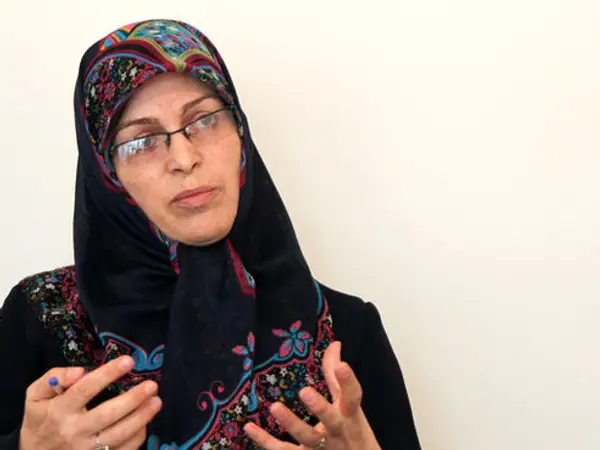A reformist female politician says she urged Iran's top security official, Ali Shamkhani in a meeting on Sunday to pursue reforms and change the constitution.
Azar Mansouri, the secretary general of Unity of the Nation Party, a coalition of so-called reformists, was quoted by a local media outlet that she and others were invited by national security council secretary Shamkhani to a meeting Sunday. She did not name the other participants, but it is safe to assume many were also reformist politicians.
Mansouri said that she urged Shamkhani to start short-, medium- and long-term reforms in governance,” first by releasing all protesters who have been detained since September, followed by constitutional changes through a “founding assembly”, as a path to emerge from the current political crisis.
The female politician also demanded a policy that would end sanctions against Iran and would help end the current economic crisis, that she said could bring “40 million people” to the streets.
The Islamic Republic leaders should first acknowledge their mistakes and “bridge gaps with the people” by listening to their grievances, Mansouri told Shamkhani.
Hardliners in charge of Iran’s ruling institutions have said time and again that there could be no constitutional changes and no “retreat from principles.” Raising the specter of constitutional change and forming a potentially unpredictable assembly will certainly be viewed by regime hardliners as a challenge to the principle of having a Supreme Leader and the person of Ali Khamenei.
Iran’s reformists are blamed by regime opponents for long pursuing the idea that the Islamic Republic can be reformed and thus giving false hope to the people. Some reformists in the past two months have acknowledged that their thinking has proven wrong, as the extent of deadly violence and untold cruelties against protesters has proven the regime incapable of reforming itself.
In fact, young protesters see little difference between regime hardliners and reformists who want to make incremental changes but keep the Islamic Republic. All slogans and announcements by protesters demand an end to clerical rule.
But according to her own account, Mansouri seems to have also said things that would be annoying to the regime. First, she upheld the memory of all those who were killed during protests since September. She also told Shamkhani that if the regime wants to hold talks with politicians as an attempt at window dressing and as a tool, the whole idea is bound to fail. Discussions to solve the political crisis should be based on “strategic rationality.”
But she was also cautious in her approach by not mentioning the absolute power Khamenei exercises or raise the issue of holding those who are responsible for the killing of hundreds of civilians responsible.
She also did not demand an immediate end to mandatory hijab, and just reminded Shamkhani that having a ‘morality police’ is a bad idea. The issue of systemic discrimination against women, she said, is an issue to be addressed in the long term.
However, she told the top security chief that Iranian women are asking “What has the Islamic society accomplished that would make us proud to use its hijab?”
Despite these remarks, many would still see reformists meeting with security officials as a non-starter, because they believe that now the regime finds itself in deep trouble and wants to save the situation. If protests end and the pressure is lifted, all talk of reform and gestures of pluralism will also end and the clerical-military rulers will go back to what they know best, monopolizing power by relying on force.
